news
Update: Energy crisis: Petrol scarcity to persist
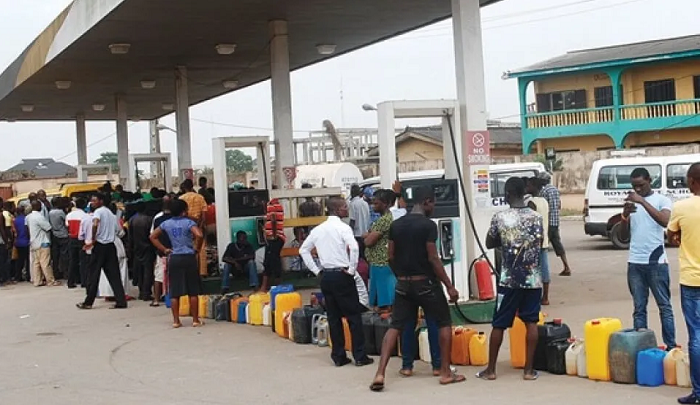
 ….Petrol subsidy could hit N6trn by end of year, IMF warns
….Petrol subsidy could hit N6trn by end of year, IMF warns
…PENGASSAN cites bridging cost, says high diesel price affecting trucking of petrol by tankers
…Adds sole importation, inadequate funds, others can’t guarantee supply
…As MOMAN canvasses full downstream deregulation, says inadequate supply responsible for scarcity
Indications emerged yesterday that the ongoing fuel scarcity in the country may not abate soon, as major stakeholders in the sector are currently expressing divergent views as to the cause(s) of the crisis.
While the Petroleum and Natural Gas Senior Staff Association of Nigeria, PENGASSAN, said there is sufficient stock of the product to serve the nation for some weeks, which seemed to be the position of the Nigerian National Petroleum Corporation Limited, another major stakeholder, the Major Oil Marketers Association of Nigeria, MOMAN, said the product available is inadequate to serve the nation, noting that the shortage was fueled by fundamental issues and problems in the sector.
PENGASSAN blamed the current scarcity on difference in the bridging gap cost between when the cost of diesel was N250 per litre and now that it had risen to as much as N820.
Speaking at an electronic medium monitored in Lagos yesterday, President of PENGASSAN, Mr. Festus Osifo, said: “Nigerian Midstream and Downstream Petroleum Regulatory Authority, NMDPRA and truck drivers are the ones administering the bridging fund.
“At a particular time, they agreed with truck drivers that the bridging fund is going to be about N10 per litre, depending on the destination you are going to all over the country.
“As at when they agreed, the cost of diesel was about N250, so it was fashionable and the N10 was okay, but today, the cost of diesel is over N700. It has tripled.
“So, the expectations from the tanker drivers is that since the cost has gone up, instead of paying N10.40 kobo as the case may be, you have to multiply it by three. This is a major problem. As at today, we have close to two billion litres of PMS, so the problem is not the stock.’’
He explained that while the stock is available, most truck drivers are not willing to move these products, “because of the previous problem I just enumerated.
“One of the issues again is that today, NNPC is the sole importer of PMS, so they import PMS into the country, and this PMS is brought to the high sea, so they rent some smaller vessels to bunker the PMS and take to the various tank farms or depots.
“So, if it’s the NNPC depots and you are loading from the NNPC depots, you are going to pay about N148 as the ex-depot price. But some of the PMS are also stored in private depots and those private depots don’t sell to retailers for N148; they add some premium to it. At the end of the day, they sell between N152, N155, N160 and N162.”
Inadequate supply, other challenges abound — MOMAN
Countering this at a virtual meeting monitored yesterday in Lagos, the Chairman of MOMAN, Mr. Olumide Adeosun and the Chief Executive Officer, MOMAN, Mr. Clement Isong, jointly observed that the current scarcity of petrol was occasioned by supply inadequacy in the last few weeks, which was worsened by the scarcity and rising price of Automotive Gas Oil (diesel), which tanker drivers depend on to move petrol from the depots to the filling stations.
They said: “MOMAN, as an association, fears that the current supply framework cannot guarantee steady and consistent supplies to the country, given the current state of government finances and unpredictable international supply shortages.”
Full downstream deregulation is key
The duo, who canvassed deregulation, said: “We recommend a gradual price deregulation with targeted palliatives (e.g. transport and agricultural subsidies) to the public to ease implementation.
“However, in the interim, MOMAN recommends that the current single supplier strategy be reviewed. The Federal Ministry of Petroleum Resources, in collaboration with the Ministry of Finance and other relevant MDAs, should set up a task force to immediately focus on increasing diesel supply through accelerated initiatives to increase local modular refining capacity. This move will tackle the supply and distribution challenges.
“There should be phased rehabilitation of existing NNPC refineries to hasten supply of middle distillates (AGO & ATK). MOMAN recognizes and closely associates with the need to ease challenges, with respect to high energy and transportation costs occasioned by extraneous circumstances.
“MOMAN shall continually do its best to distribute petrol to its customers across the country and keep exploring opportunities to partner with industry stakeholders, The Authority and the government should ensure the sustainability and institutionalization of a viable petroleum downstream sector in Nigeria.
“The full deregulation of the petroleum downstream sector and full implementation of the Petroleum Industry Act (PIA) 2021 clearly remains the most viable long-term solution to the country’s supply and distribution challenges.”
Ukraine-Russian war factor
In any case, an investigation by Vanguard indicated that the outbreak of the Ukraine – Russian war and ban on Russian oil and gas, have culminated in scarcity and rising prices globally.
Consequently, Nigeria remains one of the most affected nations because of its over-dependence on imported petroleum products at the expense of the nation’s scarce foreign exchange, thus over-stretching the capacity of government to import.
Legislators postpone dialogue with stakeholders
Meanwhile, the House of Representatives yesterday postponed its meeting with the major stakeholders in the downstream sector from yesterday to Friday this week, following the taking of permission and absent of major stakeholders.
However, the meeting was targeted at finding lasting solution to the nation’s prolonged energy crisis.
Specifically, those expected at the public hearing include the Nigerian National Petroleum Corporation (NNPC) Company limited represented by the GMD, Mr. Mele Kyari, the Minister of State for Petroleum, Timipre Sylva, the Chief Executive Officer of the NMDPRA, the Managing Director of the Nigerian Gas Company (NGC) and that of the Nigerian Gas Marketing Company (NGMC), two subsidiaries of NNPC Limited and others.
The lawmakers had in a letter signed by the Chairman of the Joint Committee on Petroleum Resources (Downstream) Hon. Mahmud Gaya, invited the heads of the organisations for the hearing.
But addressing the House, the Chairman of the joint committee, Gaya said he received communication from the GMD and the minister who said they would not be able to make it because they were also in another meeting at the time.
Long fuel queues, other woes remain
However, the queues remained visible at many filling stations across the nation, yesterday, due to lack of adequate supply.
Transporters, who managed to get supply at the prevailing black market price, ranging from N200 to N300, increased fares to cover cost.
This, it was gathered, has already culminated in the general increase in the prices of basic services and goods, including commodities, a development worsened by epileptic power supply and high prices of cooking gas as well as aviation fuel.
news
Just In : Awujale of Ijebuland,Sikiru Adetona, dies at 91

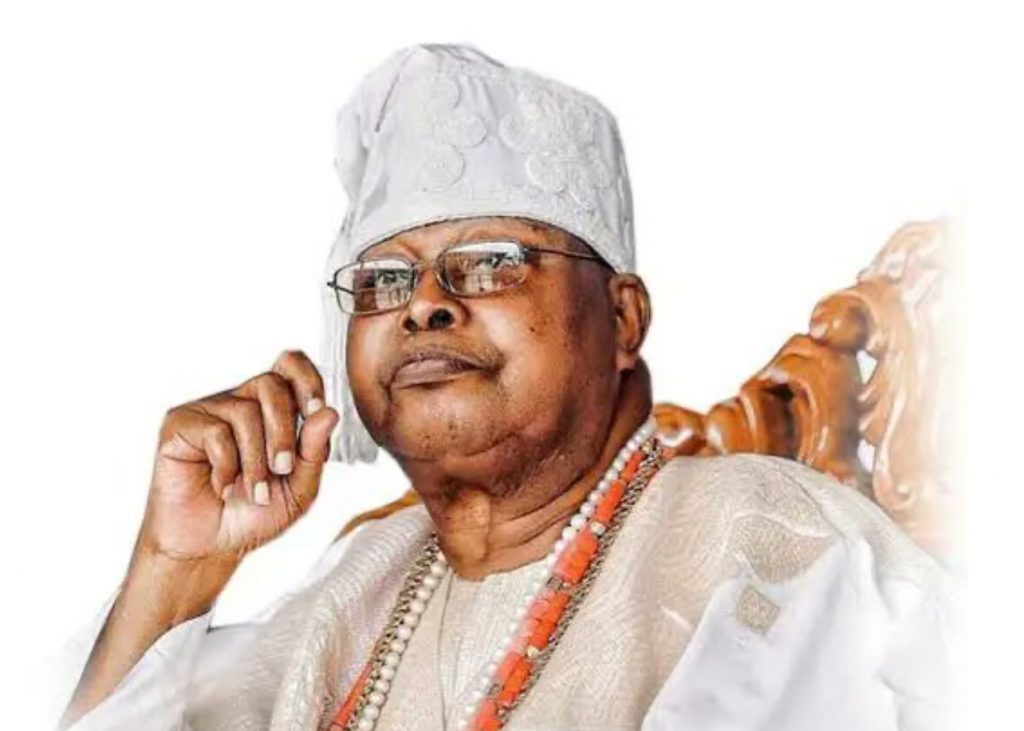 The Awujale and paramount ruler of Ijebuland, Oba Sikiru Kayode Adetona, has passed away at the age of 91.
The Awujale and paramount ruler of Ijebuland, Oba Sikiru Kayode Adetona, has passed away at the age of 91.
The respected monarch reportedly died on Sunday, just hours after the announcement of the death of his longtime friend and former President, Muhammadu Buhari.
Mourning his passage, a prince of Ijebu, Prince Adedoyin Alatishe wrote on X, “Baami Ogbagba agbatewole , Erin wo. Omo anikilaya saagbu.”
Adetona, who ascended the throne in 1960, was one of Nigeria’s longest-reigning traditional rulers and widely revered for his contributions to the sociopolitical development of Ijebuland and Ogun State at large.
news
Breaking: Former president Muhammadu Buhari has Died at a clinic in London
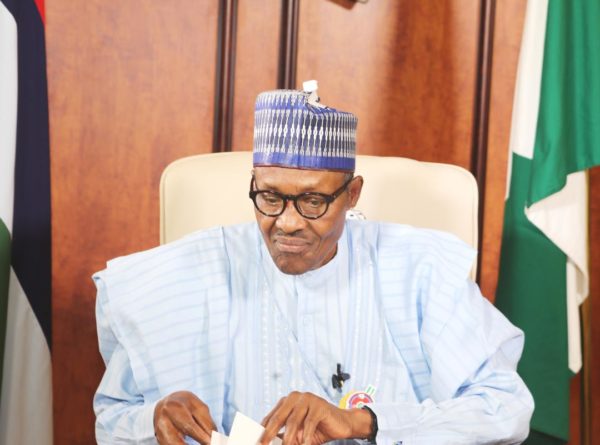
 Former president muhammadu Buhari has died at a hospital in London this afternoon according to the family, He was former military head of state in 1983.
Former president muhammadu Buhari has died at a hospital in London this afternoon according to the family, He was former military head of state in 1983.
The family of the former president has announced the passing on of the former president, Muhammadu Buhari, GCFR, this afternoon in a clinic in London. May Allah accept him in Aljannatul Firdaus, Amin.”
Detials later
news
Breaking : Tinubu returns to Abuja tonight after diplomatic visits to Saint Lucia, Brazil,Says Onanuga
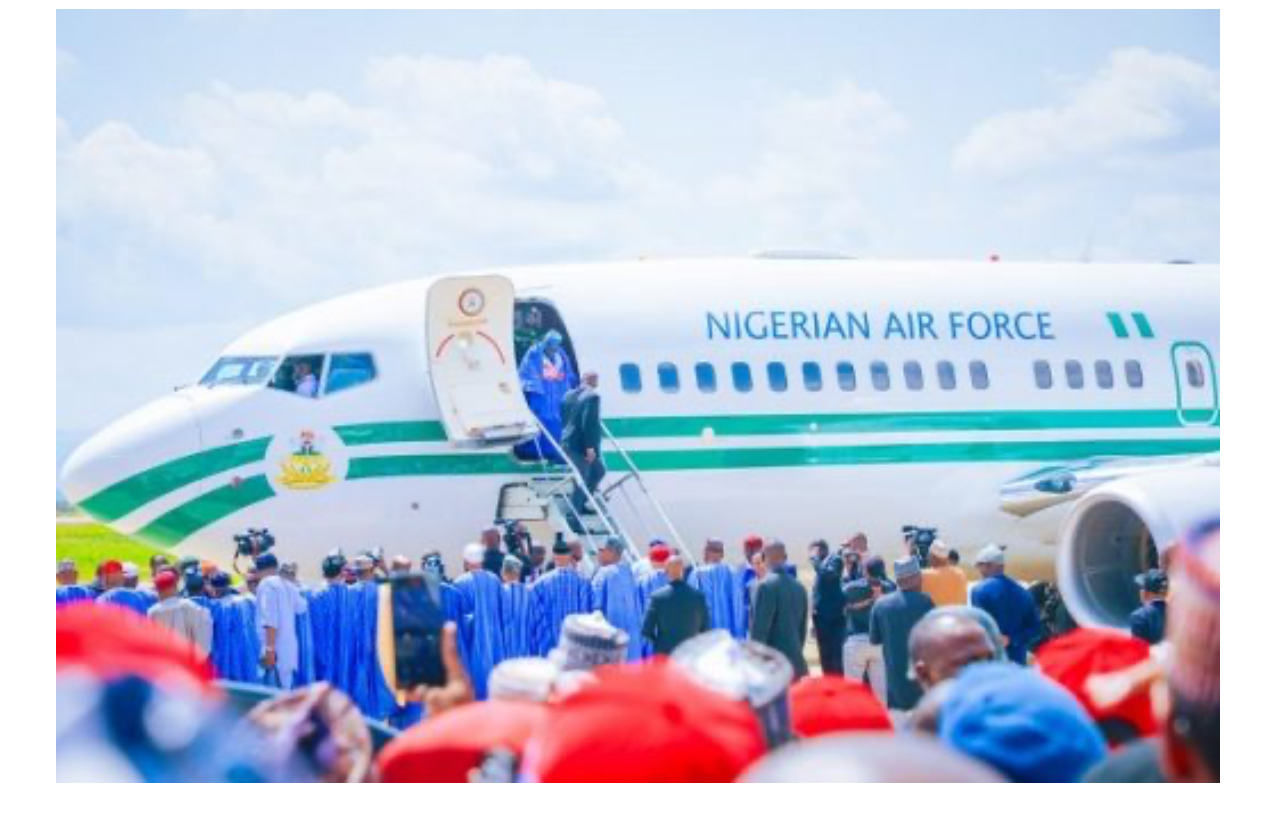
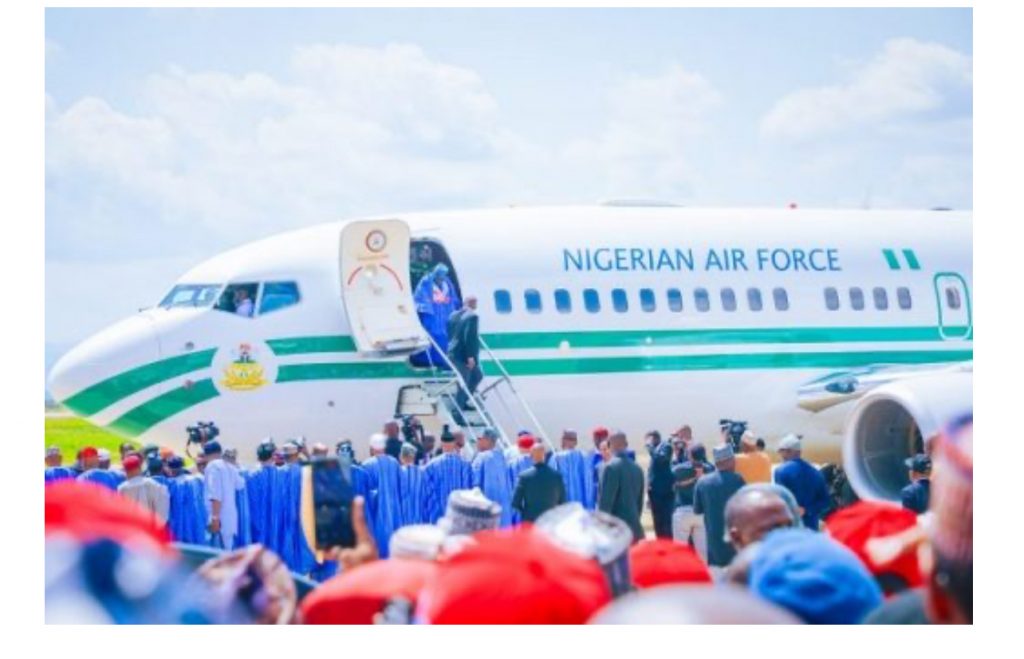 President Bola Ahmed Tinubu is expected to arrive Abuja later tonight following a two-nation diplomatic tour that took him to Saint Lucia in the Caribbean and Brazil in South America.
President Bola Ahmed Tinubu is expected to arrive Abuja later tonight following a two-nation diplomatic tour that took him to Saint Lucia in the Caribbean and Brazil in South America.
His return was confirmed in a message posted on Saturday afternoon by the Special Adviser to the President on Information and Strategy, Mr. Bayo Onanuga, on his verified X handle, @aonanuga1956.
“President Bola Ahmed Tinubu returns to Abuja today after his two-nation visit to Saint Lucia and Brazil,” the presidential aide stated.
The President departed Nigeria on Saturday, June 28 for what was described as a strategic outreach aimed at strengthening ties with regions historically under-engaged in Nigeria’s diplomatic matrix.
His first stop was Saint Lucia, where he made a historic visit to build new ties and explore emerging partnerships with Caribbean states.
While in Saint Lucia, Tinubu interacted with regional leaders under the Organisation of Eastern Caribbean States (OECS), reinforcing Nigeria’s growing interest in Caribbean diplomacy and South-South cooperation.
He subsequently proceeded to Brazil to participate in the 17th BRICS Summit held in Rio de Janeiro.
On the sidelines of the summit, President Tinubu held a bilateral meeting with his Brazilian counterpart, President Luiz Inácio Lula da Silva.
The leaders co-chaired the Nigeria-Brazil high-level bilateral meeting , where they discussed mechanisms to boost trade, infrastructure financing, and cultural cooperation between Africa’s most populous country and Latin America’s largest economy.
With the President’s return, focus is expected to shift to domestic engagements and follow-up actions on the diplomatic and investment commitments made during his foreign tour.
-

 news5 years ago
news5 years agoUPDATE: #ENDSARS: CCTV footage of Lekki shootings intact – Says Sanwo – Olu
-

 news2 years ago
news2 years agoEnvironmental Pollutions : OGONI COMMUNITY CRIES OUT, THREATENS TO SHUT DOWN FIRSTBANK,SHELL OIL COMPANY OPERATIONS FOR NOT PAYING COURT AWARD
-

 lifestyle5 years ago
lifestyle5 years agoFormer Miss World: Mixed reactions trail Agbani Darego’s looks
-

 health4 years ago
health4 years agoChairman Agege LG, Ganiyu Egunjobi Receives Covid-19 Vaccines
-

 lifestyle4 years ago
lifestyle4 years agoObateru: Celebrating a Quintessential PR Man at 60
-

 health5 years ago
health5 years agoUPDATE : Nigeria Records 790 new cases of COVID-19
-

 politics3 months ago
politics3 months agoBreaking : Oborevwori , Okowa others dumps PDP, defects to APC
-

 news2 months ago
news2 months agoBREAKING: Tinubu swears in new NNPCL Board


